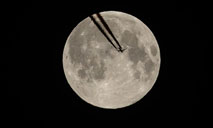Troops pullout marks failure of U.S.-led war on terror in Afghanistan, say analysts
KABUL, May 1 (Xinhua) -- Local observers describe the U.S.-led war on terror in Afghanistan as a "failure", and they say the upcoming troops withdrawal marks a "clear defeat" of the United States and the U.S.-led coalition forces in the Afghan war.
"No doubt, it is clear defeat of the U.S.-led coalition forces in the Afghan war as both the Taliban and al-Qaida network and like-minded militant groups are still active and operational in Afghanistan," political analyst Nazari Pariani told Xinhua on Saturday.
U.S. President Joe Biden announced in April that the U.S. and NATO troops will begin to pull out from Afghanistan from May 1, and that the withdrawal will be completed by September 11, the 20th anniversary of the 9/11 terror attacks.
There are roughly 3,500 U.S. troops in Afghanistan, and about 7,000 NATO troops in the country relying on U.S. logistics and security support.
The United States invaded Afghanistan and dethroned the Taliban regime which is accused of providing shelter to former al-Qaida network chief Osama Bin Laden, the alleged mastermind of the 9/11 terror attacks on New York and Washington in 2001.
Thousands of members of the U.S.-led forces and countless Afghans including civilians, security personnel and the Taliban militants have been killed in the so-called war on terror but the outcome, Pariani said, is zero as the brutal fighting has been continuing, claiming lives every day.
"The U.S. has labeled both the Taliban and al-Qaida as terrorist groups 20 years ago and invaded Afghanistan to destroy the terrorists' havens but after 20 years, the U.S. has taken a U turn and given recognition to the Taliban outfit as a political force and inked a peace agreement with the group in order to pull out its troops from Afghanistan," Pariani observed.
The renowned political analyst, who is also editor-in-chief of the popular daily newspaper Mandegar, said he believes that the United States will have to do its best to keep a minimum military and intelligence presence in Afghanistan or its neighboring countries in Central Asia.
"The failure of the U.S. in the war on terror can be gauged from that in 2001 there were only the Taliban and al-Qaida network in Afghanistan but presently (there are) more than 20 terrorist groups," Pariani said.
Retired army general Atequllah Amarkhil, who is a political and military analyst, also observed that the U.S. military presence in Afghanistan has led to the emergence of more terrorist groups and the continuation of war in the Asian country.
"Before the U.S. invasion of the Taliban regime in Afghanistan, there were al-Qaida and the host Taliban hierarchy, but currently several terrorist groups such as Islamic State, Jandullah, Al-Jihad, Lashkar-e-Tyeba and a few more are fighting in Afghanistan which clearly speaks of the U.S. failure in the war against radical groups," he said.
Photos
Related Stories
Copyright © 2021 People's Daily Online. All Rights Reserved.










